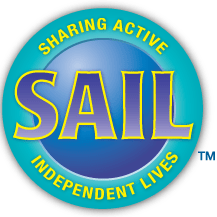
By SAIL Operating Council Member and pharmacist Alan Lukazewski
Drugs like Prilosec, Nexium, Aciphex and Protonix, and their associated generics, omeprazole, esomeprazole, rabeprazole and pantoprazole, are used by almost 28% of American’s, many talking one on a chronic basis. You may have heard of the adverse effects from these drugs, albeit not guaranteed to occur, but serious enough to consider whether long term use is appropriate. These adverse effects are bone loss and fractures, low magnesium levels, intestinal infections with the bacteria Clostridium difficile.
However, there is not confirmed evidence worldwide that proton pump inhibitors, PPIs, are associated with damage to the kidneys, and it’s quite concerning since this damage may be irreversible, all involving drugs that are not indicted for long term use except in a minority of patients.
Since older adults are already at risk for declining kidney function with age and other medications, or perhaps chronic conditions like diabetes, it is advised to talk with your doctor about whether you should be taking a PPI. If not, then a plan to slowly lower the dose, taper, and then discontinue is warranted. You’d also need to plan for managing whatever condition you took the PPI for in the first place, but many actually are able to stop PPIs without consequence.
To show you the evidence, a study of reported adverse effects to the Food and Drug Administration, people taking PPIs compare to those taking not so concerning drugs like Zantac (ranitidine) or Pepcid (famotidione) were 28 times more likely to experience chronic kidney disease, 4 times more likely to experience acute kidney injury, and 35 times more likely to experience end-stage kidney disease.
This adverse effect I suspected almost ten years ago while reviewing medications of older adults at the retirement community , having found a couple references of case reports. Now we have irrefutable evidence that this is a broad problem that can be an endemic. Picture 28% of American’s taking these drugs, albeit a low incidence of this adverse effect, but how many will be adversely effected. Don’t let this be you!

About the author:
Alan joined NeuGen (formerly WEA Trust) in February 2015 as the Director of Clinical Pharmacy. Since joining the NeuGen he worked with his internal staff and pharmacy account team to implement several programs to manage cost and safe use of medications, including a program to reduce the risk of people becoming addicted to opiates. His knowledge in adverse drug events has led to the Trust applying analytics to identify value in pharmaceuticals by avoiding drugs with higher downstream medical costs. Prior to joining NeuGen, Alan worked at Oakwood Village for 13 years (2001-2015) as Director of Pharmacy Services. He’s worked with seniors for over twenty-five years in a variety of settings. He’s a University of Illinois graduate and a Diabetes Health Educator. He strongly believes in holistic care and the importance of trying non-drug interventions whenever possible. Alan’s close ties with the University of Wisconsin Schools of Medicine and Pharmacy and his role as a service learning instructor, provided him with up to date, researched based information about drug treatments and protocols.
Alan educates seniors on ways to prevent and manage common conditions of aging in order to help people become as highly functional as possible. He discusses the use of prescription drugs with the elderly and the role he plays, as a pharmacist, in determining the appropriateness of a drug based on age, the side effects and how drugs interact, and the quality of life questions that need to be asked. He provides tips on what to ask about when a drug is prescribed in order to achieve the best possible outcome.
Through his experiences working with older people, he believes there is an over-reliance on prescription medications to manage the conditions of fracture risk reduction, memory loss, and urinary incontinence thus the idea to reduce utilization is intended to improve quality of life. Contrary to this statement, there is under-management of depression and pain in this population and more aggressive pharmacologic management is believed to help residents be more apt to rehabilitate and move to a higher functional status.
